FLASHBACK to July 1 1983:
Sixteen-year-old Simon Birrell (r), of Norwich, with millionaire Richard Branson, of Virgin Records fame, with the new video computer game, called ‘Bug Bomb’, which was designed by Simon.
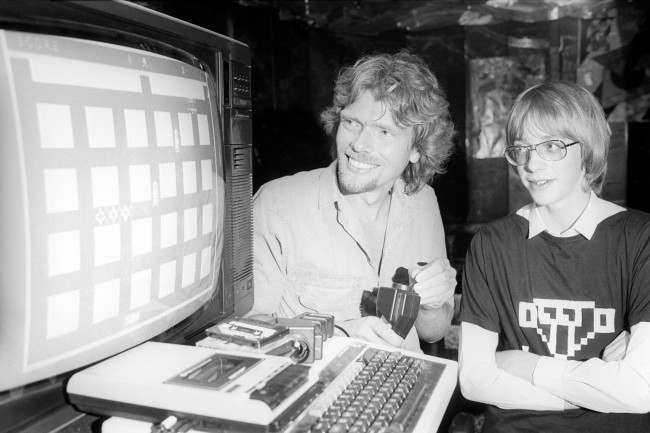
The game was made for the BBC Micro.
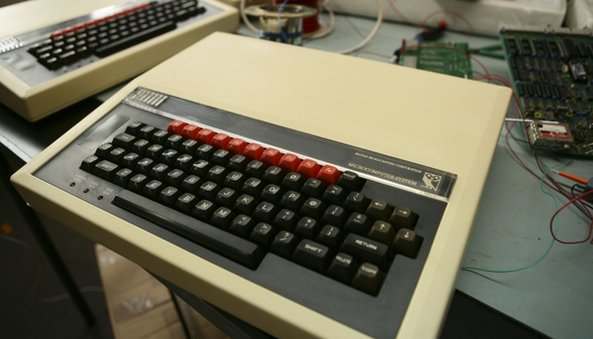
Branson wanted it for Virgin Games and to be playable on the C64.
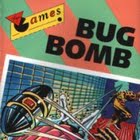
Birrell also created Microbe, reviewed thus in Acorn User, March 1984
Can humans play Simon Birrell games? If you thought Bug Bomb was fast, Microbe is manic. The story goes that you’ve been blasted into an all-powerful alien’s bloodstream to eliminate its biological defences – antibodies, aminos, ribosomes, red cells and spores – from the inside. Biology ‘O’ level is no advantage.
You pack a gun in each of your crab-like claws and can not only move back and forth along the bottom of the screen space-invader fashion, but can go up and meet the nasties head on. It’s a cross between Galaxians and Centipede, but there are no hiding places. Really it’s a very slick and professionally designed game. The sound and visual effects are exemplary – but oh it’s fast!
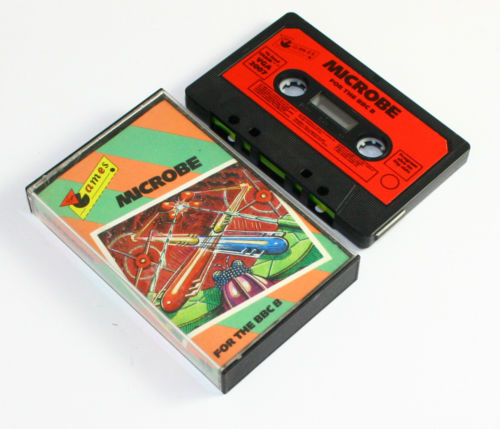
And he created High Rise Horror:
The game involves having to shoot baddies with a balloon which you blow up and then let go of within a maze like structure.
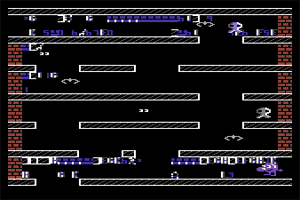
In 2000, Birrell spoke to Stairway To Hell:
I was given a BBC Model B by my parents when I was 16, before that I had been programming a Commodore Pet in the school’s “computer room”, in reality a cupboard under the stairs. I had been pestering them for a Vic 20, and had mixed feelings when I was told about the machine I would be getting as a present. Of course I soon fell in love with the BBC, and I’m sure it improved my extremely primitive coding techniques.
It’s a while ago, so I don’t remember how long I’d had the Model B, but I set to work on a game called “Alleyways”. The day I finished the game I saw an ad in a computer magazine by Virgin, announcing the establishment of Virgin Games, and asking for submissions. Naturally I sent in a tape of “Alleyways”, and was called soon afterwards by Nick Alexander, the head of the new company. I had been hoping for 100 pounds, maybe even 150, so I was blown away at being offered 1000 pounds + royalties. He predicted selling 100,000 copies, which sounded optimistic even to my naive ears. He also wanted to change the game’s title to “Bug Bomb”. My Dad had to sign the contract as I was too young. I think I was their first “sign”, and therefore their first ever programmer.
Virgin had already made a name for themselves in records, and to a lesser extent in books and films. They saw games as a natural extension, and I remember the interviews and press releases Nick gave, claiming that games programmers were “the new pop stars”. Virgin quickly realized its mistake, of course, but for that short, glorious period around the launch of the first titles, myself and the other spotty unattractive youths were treated like stars! We were put up in great hotels, interviewed on TV (I have a particularly embarrassing video of a TV-Am appearance), by newspapers and magazines (I remember the Sun asking me if I had a girlfriend…) and the whole craziness culminated in a launch party on the Kensington Roof Gardens.
Branson was there, and played Bug Bomb (I have a photo!). The place was packed with second-rate celebrities, the programmers, families and media…
Back at home, I used some of the loot to buy a disk drive for the BBC (I had written Bug Bomb using a tape drive). Obviously, my first thought was to write a new game asap. Next up was Microbe. This was inspired by a Vic 20 game called Myriad shown to me by a friend. My aim in writing it was to have the noisiest, fastest game ever written with the most explosions. This quickly brought in another 1000 pounds advance, and was the only game I ever wrote where the adavnce was actually recouped and surpassed. I earned another 600 in royalties. I was one happy teenager.
Times were changing though, and High Rise Horror didn’t meet the automatic acceptance at Virgin that I had come to expect. They said they liked the game, but needed a C64 version. They shipped me a C64 and I set to work. While I missed the “cleaness” of the BBC and was annoyed by the chaotic and unprofessional nature of the new platform, I recognized that it was better for gaming. That was the end of the BBC for me, at least as far as commercial work was concerned…
Simon is now CEO at Brazilian internet marketing company VEMM (Euro-Demand LLC).

Branson was never heard of again.
Would you like to support Flashbak?
Please consider making a donation to our site. We don't want to rely on ads to bring you the best of visual culture. You can also support us by signing up to our Mailing List. And you can also follow us on Facebook, Instagram and Twitter. For great art and culture delivered to your door, visit our shop.

